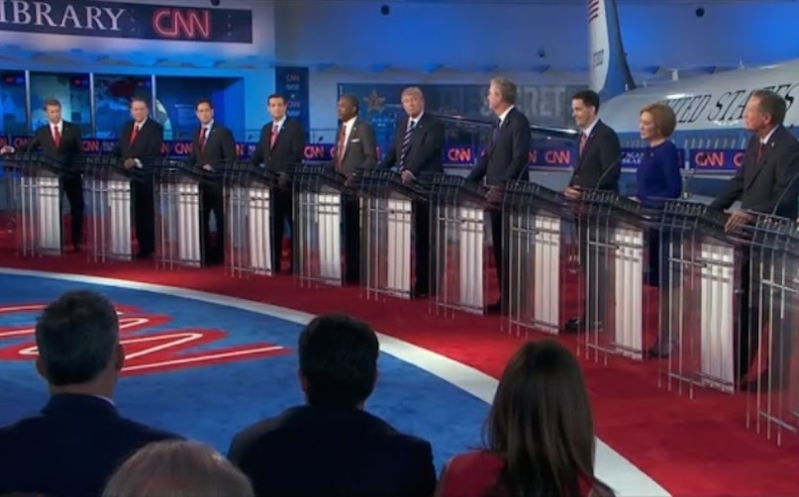
New Jersey Governor Chris Christie and former Arkansas Governor Mike Huckabee failed to qualify for next Tuesday's prime-time Republican presidential debate, which will feature a smaller field of eight candidates, Fox Business said on Thursday.
Christie and Huckabee had both been on the main stage for the party's first three televised debates. But they did not meet the criteria set by the cable network in which candidates needed an average of at least 2.5 percent support in the four most recent major polls ahead of the November 2016 election.
They will join Louisiana Governor Bobby Jindal and former Pennsylvania Senator Rick Santorum in the "undercard" debate of lower-polling candidates, who were required to score at least 1 percent in any of those four polls.
Two Republican candidates who previously appeared in the undercard debates - South Carolina Senator Lindsey Graham and former New York Governor George Pataki - joined former Virginia Governor Jim Gilmore in failing to qualify for either of next week's debates because of low polling numbers.
The eight candidates chosen for the main debate according to Fox Business' polling criteria were billionaire businessman Donald Trump, who ranked first, followed by retired physician Ben Carson, Florida Senator Marco Rubio, Texas Senator Ted Cruz, former Florida Governor Jeb Bush, former business executive Carly Fiorina, Ohio Governor John Kasich and Kentucky Senator Rand Paul.
The previous Republican prime-time debates had at least 10 contenders on stage.
"It doesn't matter the stage, give me a podium and I'll be there to talk about real issues," tweeted Christie, who has struggled to gain traction in the crowded Republican field for the party's 2016 nomination.
Huckabee tweeted on Thursday night: "I'm happy to debate anyone, anywhere, anytime," adding in a second tweet: "We are months away from actual votes being cast and neither the pundits nor the press will decide this election, the people will."
Graham's campaign manager, Christian Ferry, voiced disappointment, saying in a statement: "Regardless of this decision tonight, Senator Graham continues to be the foremost expert on foreign policy and national security in this field of candidates, on either stage."
Pataki said in a statement: "I am very disappointed tonight that early national polls are shaping the election choices for the American people," adding the trend was "a clear boost to the worship of celebrity over accomplishment and ideas."
Some Republican campaigns are demanding a more active role in negotiations with TV networks after anger at how the CNBC debate last week was handled. There have also been concerns that too many candidates are on stage and do not get enough time to speak.
Next Tuesday's two-hour prime-debate in Milwaukee will air at 9 p.m. EST preceded by the undercard debate at 6 p.m. EST.
To learn about the undecided voters who determine elections, click this link.
For more on the 2016 presidential race, see the Reuters blog, "Tales from the Trail"






